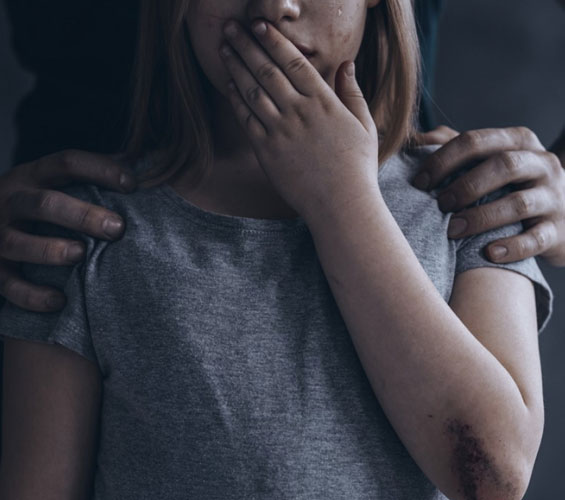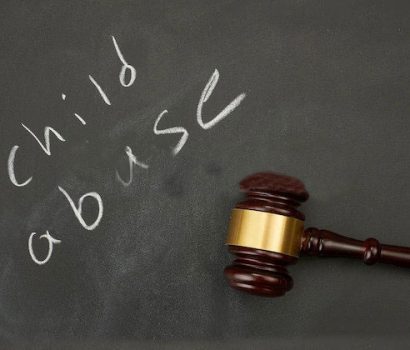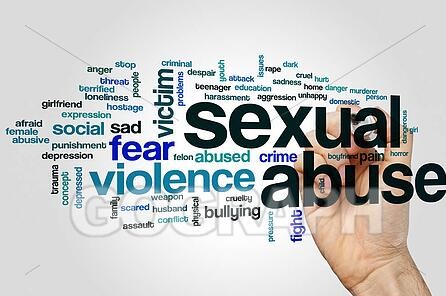The global prevalence of childhood sexual abuse is an epidemic. Sexual predators target innocent victims to groom them for unsolicited and unwarranted sexual exploitation and abused. These victims often have no one to turn to for help. The immense trauma results in prolonged nightmares, anxiety, stress, eating disorders, loss of self-worth, and loss of identity. It does not discriminate across race, religion and class and has lifetime effects.
An experienced California sexual abuse lawyer can help facilitate the healing process by giving these victims a voice to stand up against these abuser and other parties companies and institutions that allowed the abuse to continue. Focused on making changes through litigation that ultimately save other children from suffering the same fate, we help these voiceless victims stand upon for justice by holding the at-fault party accountable for the tremendous damages suffered.

Most sexual abuse victims are acquainted with their abusers. Approximately 30% are relatives of the child and 60% are other acquaintances, such as family friends, priests, teachers, or even neighbors. Abusers utilize a cunning process called “grooming” to gain the victim’s trust.
Perpetrators seek to form close relationships with their victims. Once a relationship is established, they will test the boundaries of your child’s comfort levels. Examples may include inappropriate sexual jokes, tickling, or even watching sexually explicit movies together. Sometimes they will tell off-colored or sexualized jokes to see how the child will respond. Like any relationship, the grooming behavior intensifies with the victim’s comfort eventually resulting in inappropriate touching such as accidentally grazing a private part of the body, just to see how the child will react. Guilt, embarrassment and threats will often prevent the child from saying anything after being told by the perpetrator that “it is our secret” or “no one will believe you.” Grooming behaviors to look for may include:

Under most circumstances, a victim who wants to file a claim for child sexual abuse has until they reach the age of 40 years old or five years after they discovered the abuse to bring a claim (whichever is later). There are sometimes exceptions to these rules.
In sexual abuse cases, ordinarily the cause of action will accrue during the alleged abuse. Under the delayed discovery doctrine, however, accrual of a cause of action is postponed until the plaintiff discovers, or has reason to discover, the cause of action. For delayed discovery, courts have invoked the equitable delayed discovery rule if the victim can allege that he or she, given their youth, ignorance, and inexperience, lacked a real awareness that what happened to them was wrong.

It is possible for adults to not remember episodes of childhood abuse, even if definitive records of abuse occurred. Most people remember bad things, but sometimes extreme trauma is buried in the subconscious. This dissociative disorder is not well understood and often questioned. Until the mind of the victim makes an association with the feelings or senses connected with the trauma, the memory of the event could remain dormant to be discovered at a much later time.
Equally true, the time to bring a claim is continued where the victim has been prevented or deterred from filing of a timely claim by some affirmative act. A directive by an authority figure to a child not to tell anyone of the molestation is a sufficient inducement of delay to invoke an estoppel.
Childhood sexual abuse causes depression, guilt, shame, self-blame, and other relationship problems. Survivors feel worthlessness, isolated and terrified of interpersonal relationships. Some even think about suicide or turn to drugs and alcohol to mute their internal pain. Because they are children when the abuse occurs, their guilt can be overwhelming often blaming themselves for what happened and display more self-destructive behaviors. Even physical symptoms can manifest including gastrointestinal problems, headaches, and chest pain.
Often survivors experience chronic anxiety, tension, anxiety attacks, and post-traumatic stress. As a coping mechanism when they feel unsafe or threatened, they will dissociate. They may also experience nightmares, flashbacks, and difficulty experiencing feelings. The fear is so consuming it can lead to repression of the experience as a coping mechanism.
Most significant, sexual abuse victims lose trust in humanity and feel stripped of anything safe. When the source of that betrayal is someone close, it can be especially devastating. The grooming behavior of inappropriate sexual abuse strikes the very heart of a victim’s ability to trust another person, forever questioning people’s motive and interest in their wellbeing making any future relationships a significant obstacle.
A child victimized by a sexual predator may seek compensation not only against the person who caused the harm by also against those companies and organizations that put blinders on and allowed the conduct to occur. By giving them a voice, these survivors can seek to rebuild what they have lost through an award of money that provides services to address the severe emotional and psychological harms caused by the perpetrator and its organizations. The specific damages you may recover, and the value a judge or jury assigns to them, will depend on your case.

Our California child sexual abuse attorneys can evaluate your specific child sexual abuse case for free to help you calculate its worth. We will do whatever it takes to maximize compensation for your damages while trying to maintain as much privacy and dignity as possible throughout the litigation process. Talk to one of our lawyers and see if we can help. Contact Us Today!
